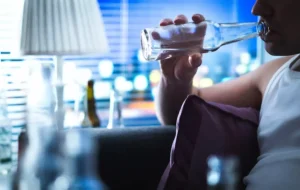How to Get Weed Out of Your System Fast THC Detox Tips
In general, you don’t need to worry too much about blood tests if you use cannabis. They are a rarity, and as long as you have enough warning to “prepare” for the screening, you should be okay. While the above methods have the potential to help you pass a urine test, none of them are guaranteed to be effective. Even if you follow all the directions to a T, you may still fail your test.
Detectable Weed Presence in Various Testing Samples
Because of its preference for fats, THC finds its way into the fatty tissues of the body, where it is stored and slowly excreted. The type of drug test you undergo will have a major impact on whether or not you test positive. For example, a urine test will show weed in your system for a longer period of time than a blood test. If you how long does weed stay in your system are seriously concerned (and/or the thought of drug testing makes you anxious), your best bet is to hold off on consumption. Or at the very least, minimize your weed intake for the time being. After all, it’s impossible to know exactly how long weed will show up in your system.
How Long Does THC Stay in Your System?
Afy also likes to read non-fiction, do creative writing, and travel solo. Current evidence suggests that short-term use of cannabis may be safe, but researchers know less about long-term risks and benefits. Another concern is that cannabis is not legal federally and is still not legal in many states.
How long does weed stay in your system for heavy users?
Over time, your liver breaks THC down into metabolites, commonly known as 11-hydroxy-THC and carboxy-THC. A portion of these exits your body via feces or urine, but the rest can linger in body fat for re-release into your bloodstream later. ARCannabisClinic is dedicated to offering expert guidance and compassionate care for those considering medical marijuana. As a trusted network of medical marijuana card doctors, they provide personalized treatment plans to help manage chronic pain, anxiety, and other conditions. Their commitment to staying informed on the latest cannabis research ensures that patients receive access to the best strains and products.
If you know the date of your drug test, you should plan ahead to make sure that you’re able to detox completely. Age, metabolism, diet, sleep, and more can all influence how long THC stays in your system. If you’re looking to quickly cycle THC out, focus on overall health and wellness.
- While saliva tests are more convenient and less invasive than other methods, they are less reliable when it comes to detecting marijuana use beyond a few days.
- Typically, after smoking, the effects of cannabis kick in almost immediately, reaching peak effects within 30 minutes.
- These kits don’t work reliably, and drinking large quantities of water in a short period of time can be fatal.
- This is because cannabinoids are lipophilic (literally, “fat-loving”), meaning they are attracted to and stored in fat tissues throughout the body.
- People who use weed a lot or in big amounts might have it in their system longer.
Your health, including your kidneys and liver, also plays a part in how fast THC is removed through urine and stool. People trying to clear THC from their system need to know these details. For athletes and people who get tested for drugs often, knowing these timelines is key. The best way to pass a drug test is to not use cannabis at all. Knowing about the marijuana half-life and weed presence in blood is crucial.
- However, it’s not clear whether cannabis directly causes under- or oversleeping, or if this association exists because people who already have sleep issues are more likely to use cannabis.
- Sign up for bi-weekly updates, packed full of cannabis education, recipes, and tips.
- The hippocampus is responsible for memory formation, which is why cannabis can sometimes affect short-term memory.
- Hair follicle drug tests can assess previous drug use for up to 90 days, because as standard they only test the newest 3.9cm of hair.
- River Rock Treatment, located in Burlington, VT, offers clinically driven outpatient substance use and mental health treatment.
Study links cannabis and synthetic cannabinoid use to poorer male sexual function
I ate a cookie 40mg and tested dirty 2weeks later iam 73years old and weigh195lbs. A workout that mixes cardio and strength would be the best to flush marijuana out, starting a few weeks prior to testing. Lemonades and citrus juices are full of electrolytes which are great detoxing agents. Tea will also help you flush THC out, so drink a few cups of green, black or white tea a couple of days before your test.















